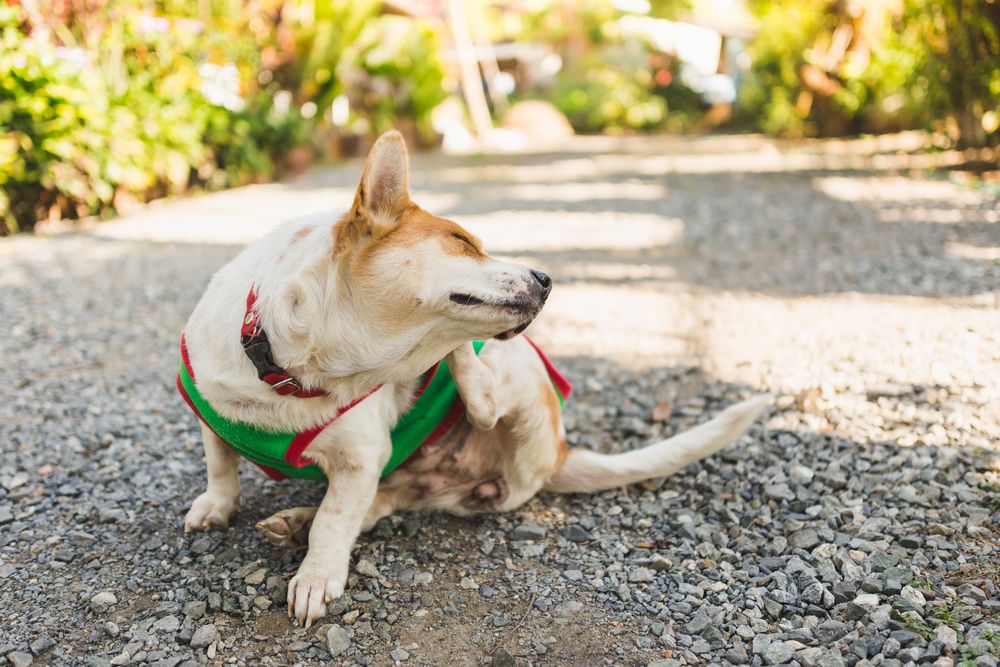Can White Vinegar Safeguard Your Dog's Paws? A Comprehensive Guide
White vinegar for dogs paws has been a trusted natural remedy for years, offering a safe and effective way to maintain your pet's paw health. Many pet owners turn to this kitchen staple as a natural disinfectant and soothing agent for their furry friends. This simple solution can help clean, deodorize, and protect your dog's paws from environmental irritants. While it may sound surprising, white vinegar is an excellent option for maintaining your dog's overall paw health without harsh chemicals.
Using white vinegar for dogs paws is gaining popularity among pet owners who prefer natural remedies. It's a cost-effective and eco-friendly solution that can address common issues like dirt buildup, odors, and minor irritations. This article will explore the benefits, proper usage, and precautions associated with this versatile household item. Whether you're a seasoned pet parent or new to the world of natural pet care, this guide will provide valuable insights into keeping your dog's paws healthy and happy.
As more people seek alternatives to commercial pet products, white vinegar for dogs paws is proving to be a reliable option. However, it's essential to understand how to use it correctly and safely. In this article, we'll delve into the science behind its effectiveness, potential risks, and tips for integrating it into your pet's routine. Let's explore how this simple ingredient can make a significant difference in your dog's paw care.
Read also:Discovering Evelyn A Comprehensive Guide To Her Life Achievements And Influence
Why Consider White Vinegar for Dogs Paws?
Many pet owners are turning to natural remedies to care for their dogs' paws, and white vinegar has emerged as a top choice. Its acidic properties make it an excellent disinfectant, helping to eliminate bacteria and fungi that can cause infections. Additionally, it acts as a natural deodorizer, neutralizing unpleasant odors that may linger on your dog's paws after outdoor adventures. This versatile solution is also gentle enough for regular use, making it a go-to option for maintaining paw hygiene.
One of the primary reasons pet owners choose white vinegar for dogs paws is its accessibility. Unlike specialized pet products, white vinegar is readily available in most households. It's also cost-effective, allowing you to save money while ensuring your dog's paws stay clean and healthy. However, it's important to note that while white vinegar is generally safe, it should be diluted properly to avoid irritation. Understanding the correct application methods is key to reaping its benefits.
What Are the Benefits of Using White Vinegar for Dogs Paws?
The advantages of using white vinegar for dogs paws extend beyond basic cleaning. Its antimicrobial properties help prevent infections caused by bacteria and fungi, which are common culprits behind paw issues. Additionally, it can soothe minor irritations and reduce inflammation, providing relief for dogs with sensitive paws. Regular use can also help maintain the natural balance of oils on your dog's paws, preventing dryness and cracking.
Another significant benefit is its ability to neutralize odors. Dogs often pick up unpleasant smells from their environment, and white vinegar is an effective way to eliminate these without resorting to harsh chemicals. By incorporating this natural remedy into your dog's grooming routine, you can promote overall paw health while ensuring your pet remains comfortable and happy.
How Often Should You Use White Vinegar for Dogs Paws?
While white vinegar is a safe and effective solution for dog paw care, it's important to use it in moderation. Overuse can lead to dryness or irritation, so it's recommended to incorporate it into your dog's routine 1-2 times per week. This frequency allows you to clean and disinfect your dog's paws without compromising their natural moisture balance. Always dilute the vinegar properly before application, using a ratio of one part vinegar to two parts water for optimal results.
Is White Vinegar Safe for All Dogs?
Although white vinegar is generally safe for most dogs, there are certain considerations to keep in mind. Dogs with sensitive skin or pre-existing paw conditions may experience irritation if exposed to undiluted vinegar. It's crucial to perform a patch test before using it extensively to ensure your dog tolerates it well. Additionally, avoid using white vinegar on open wounds or cuts, as it may cause discomfort or delay healing. Consulting with your veterinarian is always a good idea before introducing any new product into your dog's grooming routine.
Read also:Voices In The Lion King Movie An Indepth Exploration
Can White Vinegar Replace Commercial Dog Paw Products?
While white vinegar for dogs paws can serve as an excellent natural alternative, it may not fully replace commercial products designed specifically for pet care. However, it can complement these products by providing additional cleaning and disinfecting benefits. For instance, you can use white vinegar as a rinse after a walk to remove dirt and debris, followed by a moisturizing balm to lock in hydration. This combination ensures comprehensive paw care while leveraging the strengths of both natural and commercial solutions.
What Are the Potential Risks of Using White Vinegar for Dogs Paws?
Although white vinegar is generally safe, improper use can lead to potential risks. Using undiluted vinegar or applying it too frequently may cause dryness or irritation, especially in dogs with sensitive skin. Additionally, some dogs may have allergies or sensitivities to vinegar, which can manifest as redness, itching, or discomfort. To minimize these risks, always dilute the vinegar properly and monitor your dog's reaction closely. If you notice any adverse effects, discontinue use and consult your veterinarian for advice.
How to Properly Apply White Vinegar for Dogs Paws?
Applying white vinegar for dogs paws requires a careful and methodical approach. Start by mixing one part white vinegar with two parts water in a spray bottle. Gently spray the solution onto your dog's paws, ensuring it reaches between the toes and around the pads. Avoid soaking the paws, as excessive moisture can lead to irritation. After application, allow the solution to sit for a few minutes before wiping it off with a clean, damp cloth. This process ensures thorough cleaning without overexposing your dog's paws to the vinegar.
For best results, incorporate this routine into your dog's regular grooming schedule. You can also use a cotton ball soaked in the diluted vinegar solution to target specific areas, such as the spaces between the toes. This method is particularly effective for dogs with long hair around their paws, as it allows for precise cleaning without disturbing the surrounding fur. Remember to rinse the paws thoroughly after using the vinegar solution to prevent any residual irritation.
What Are the Best Practices for Storing White Vinegar?
Proper storage of white vinegar is essential to maintain its effectiveness and safety for your dog's paws. Store it in a cool, dark place away from direct sunlight to preserve its potency. Additionally, keep it in a tightly sealed container to prevent contamination or evaporation. When preparing the solution, always use fresh water and a clean spray bottle to avoid introducing bacteria or impurities. These simple steps ensure that your white vinegar remains safe and effective for your dog's paw care routine.
Can White Vinegar Help With Seasonal Paw Issues?
Seasonal changes can significantly impact your dog's paw health, and white vinegar for dogs paws can play a crucial role in addressing these issues. During winter, salt and de-icing chemicals can irritate your dog's paws, leading to discomfort and potential infections. White vinegar acts as a natural barrier, helping to protect your dog's paws from these harmful substances. Similarly, during summer, it can soothe irritated paws caused by hot pavement or allergens. By incorporating white vinegar into your dog's seasonal care routine, you can provide year-round protection and comfort.
Conclusion: Is White Vinegar the Right Choice for Your Dog's Paws?
White vinegar for dogs paws offers a natural, cost-effective, and versatile solution for maintaining your pet's paw health. Its antimicrobial properties, deodorizing capabilities, and soothing effects make it an excellent addition to any dog's grooming routine. However, it's essential to use it responsibly and in conjunction with other paw care practices to ensure optimal results. By following the guidelines outlined in this article, you can harness the benefits of white vinegar while prioritizing your dog's comfort and well-being.
Table of Contents
- Why Consider White Vinegar for Dogs Paws?
- What Are the Benefits of Using White Vinegar for Dogs Paws?
- How Often Should You Use White Vinegar for Dogs Paws?
- Is White Vinegar Safe for All Dogs?
- Can White Vinegar Replace Commercial Dog Paw Products?
- What Are the Potential Risks of Using White Vinegar for Dogs Paws?
- How to Properly Apply White Vinegar for Dogs Paws?
- What Are the Best Practices for Storing White Vinegar?
- Can White Vinegar Help With Seasonal Paw Issues?
- Conclusion: Is White Vinegar the Right Choice for Your Dog's Paws?


